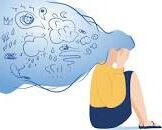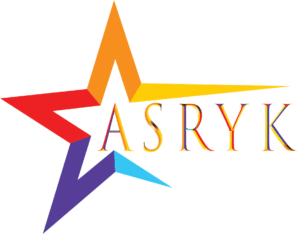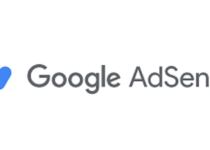Depression |
What is depression????
Depression could be a state of low mood and aversion to activity that may affect a person’s thoughts, behavior, feelings and sense of well-being. Depressed people may feel sad, anxious, empty, hopeless, helpless, worthless, guilty, irritable, hurt, or restless. they will lose interest in activities that when were pleasurable, experience loss of appetite or overeating, have problems concentrating, remembering details, or making decisions, and should contemplate, attempt or kill. Insomnia, excessive sleeping, fatigue, loss of energy, or aches, pains or digestive problems that are immune to treatment might also be present. Some people with depression experience many of the symptoms but seldom or never develop an identifiable “reason” for his or her symptoms.
Depression may be a medical illness that affects quite 14 million American adults and 6% of youth ages 12-18 in a very given year. Depression is that the leading reason for death for people ages 15-24.
Anxiety Disorders occur in about 50 million people within the us every year.

Anxiety could be a normal reaction to worry. Many kids and adults feel anxious— before or during a test, as an example, or when speaking publicly. But when worries and fear are severe, they’ll be disabling.
Anxiety Disorders include generalized mental disorder, social psychological disorder, separation disturbance, phobias, obsessive-compulsive disorder, and anxiety disorder. You or someone you recognize may have only 1 of those disorders, or a mix. Anxiety disorders don’t seem to be always life-long. Some people have one in their lifetimes, but many recover. Also, anxiety disorders are related to suicide.
Obsessive-Compulsive Disorder (OCD) is characterized by uncontrollable, reoccurring thoughts (obsessions) and behaviors (compulsions) that originate a state of unease. those that suffer from OCD have a fear of germs and dirt and exhibit repetitive cleaning and washing behaviors. they’ll also avoid things that may potentially contaminate them, like dirt, unwanted physical contact and certain kinds of health treatment or self-care. those who bear OCD generally experience great anxiety when performing a compulsion, like excessive and unreasonable hand washing, counting or arranging objects, superstitious rituals or repeating internal verbalization.
v
hallucinations and delusions, disorganized speech or behavior, social withdrawal,
flat affect, catatonia, and tremor.
Most experts believe there’s a genetic predisposition to schizophrenia. That is, schizophrenia tends to run in families. Although it’s difficult to see the proportion of individuals within the general population with schizophrenia, it’s believed to be from 1% to three.
Schizophrenia impairs day-to-day living thanks to how symptoms express and disrupt thought processes, behavioral patterns, emotions, and relationships with others.
Signs and Symptoms include:
Delusions of reference, believing certain unspecified activities –for instance, watching TV –are messages directed at the individual from an out of doors force or deity, thinking that music is ordering or commanding the person to perform acts, believing thoughts are being implanted into his or her mind Delusions of persecution, constantly thinking that they are being followed and plotted against by others Delusions of grandeur, believing that he or she has unusual powers or abilities Hallucinations, hearing, seeing, feeling, smelling, or tasting things that others
cannot perceive or are imagined by the individual Denial and lack of awareness of their illness(es) A deterioration in relationships with friends and family
Treatment Options for Schizophrenia include:
Drug therapy
Behavioral therapy
Cognitive behavioral therapy
Family therapy Vocational therapy
Housing and residential services Assisted Outpatient Treatment
Psycho-social rehabilitation
Peer and self-help groups
Support groups like the National Alliance on mental state (NAMI)
Schizophrenia could be a chronic, severe, and disabling brain disease. It affects the way someone thinks, feels, and behaves. It results from a posh mixture of genetic and environmental factors. Problems with perception, thinking, language, emotion regulation, and sense of self also are present. Symptoms include auditory hallucinations and delusions, disorganized speech or behavior, social withdrawal, flat affect, catatonia, and tremor.
Most experts believe there’s a genetic predisposition to schizophrenia. That is, schizophrenia tends to run in families. Although it’s difficult to see the proportion of individuals within the general population with schizophrenia, it’s believed to be from 1% to three.
Schizophrenia impairs day-to-day living thanks to how symptoms express and disrupt thought processes, behavioral patterns, emotions, and relationships with others.
Signs and Symptoms include:
Delusions of reference, believing certain unspecified activities –for instance, watching TV –are messages directed at the individual from an outdoor force or deity, thinking that music is ordering or commanding the person to perform acts, believing thoughts are being implanted into his or her mind
Delusions of persecution, constantly thinking that they are being followed and plotted against by others
Delusions of grandeur, believing that he or she has unusual powers or abilities
Hallucinations, hearing, seeing, feeling, smelling, or tasting things that others cannot perceive or are imagined by the individual Denial and lack of awareness of their illness(es)
A deterioration in relationships with friends and family Treatment Options for Schizophrenia include: Drug therapy Behavioral therapy Cognitive behavioral therapy Family therapy Vocational therapy Housing and residential services Assisted Outpatient Treatment Psycho social rehabilitation Peer and self-help groups Support groups like the National Alliance on mental disease (NAMI) Substance Use and Addiction means having abused or dependent alcohol or other drugs, called a substance use disorder. An addiction may be a condition within which someone engages within the use of a substance to the purpose that it takes over their life. The person may want the substance is required so as to survive.
reatment and recovery will always be an ongoing process. Many people experience relapses as a result of their substance use disorders. Relapses can often be discouraging and many people may initially decide treatment does not work for them. It is important to remember that treatment is not a “one and done” solution. Working closely with a team of professionals allows individuals to tailor their treatment plans towards what is most effective for them. Other options may include multi-phase treatment and long-term treatment.
Options include inpatient, outpatient, residential, and methadone programs. Inpatient treatments (i.e., sub-acute programs) require a person to live at the treatment facility for a specific length of time. Clinic based treatments (i.e., outpatient programs) allow a patient to live at home or another structured environment. Individual counseling is beneficial for helping to understand and develop coping strategies. Another resource available to clients is education. The team will can inform individuals on any specific mental health laws in the state as well as measures that can be taken to ensure their safety.
Assistance Dog Training Programs (ADTP) in educational and/or military environments for individuals with physical and cognitive disabilities. They help individuals who have difficulty with task persistence, who have little behavior support outside of the ADTP, and those with ongoing and high anxiety.



